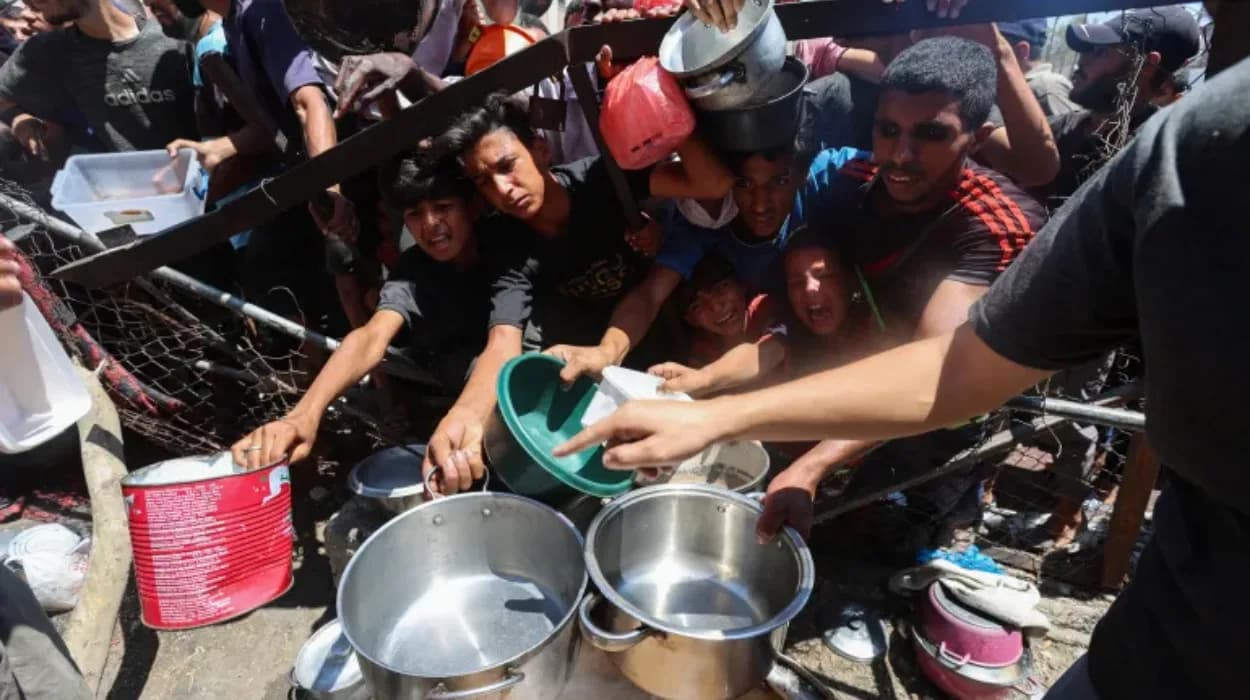Twenty-five countries, including the UK and France, have
jointly called for an immediate end to Israel’s military operations in Gaza
amid escalating casualties and humanitarian crisis. The international community
urges urgent ceasefire to prevent further civilian suffering and to facilitate
humanitarian aid.
Who Are the Countries Calling for an End to the War on Gaza?
As reported by multiple international outlets, a coalition
of 25 nations—headed by the United Kingdom and France—has issued a joint
statement demanding that Israel’s offensive in Gaza must cease immediately.
This group includes European allies and other global partners who are increasingly
alarmed by the intensifying conflict and its dire human toll.
This strong diplomatic move indicates growing global
consensus on the urgent need to halt hostilities in Gaza and create conditions
conducive for peace talks and humanitarian access.
What Are the Reasons Behind the Demand for the Ceasefire?
According to statements analysed by journalists from the
Religion Media Centre and other media, the chief concerns revolve around
escalating civilian deaths, mass displacement, and severe shortages of medical
and humanitarian supplies. The humanitarian situation in Gaza has deteriorated
significantly, prompting international leaders to warn of a broader regional destabilisation
risk if the conflict continues unchecked.
Baroness Warsi, a noted British political figure, has
previously highlighted the challenge of combating hate and violence without
clear definitions and consensus in policy, a concern reflected here as broader
international humanitarian and political issues converge around the war.
International Community Responded to the Crisis
The UK and France's leadership in this appeal signals a
united front from Western nations who advocate for immediate de-escalation.
Diplomats and policymakers from these countries have stressed that an end to
military action is essential to enable the delivery of aid and protect innocent
civilians caught in the conflict zone.
Moreover, the response is part of wider geopolitical
concerns involving regional minority groups such as the Druze in Syria, whose
own recent ceasefire agreement highlights the complex religious and ethnic
dynamics influencing Middle East stability. Israel’s previous
interventions aimed at protecting these minorities underscore the intricate and
sensitive nature of regional security.
What Has Been the Role of Other News Media and Experts on This Issue?
Insightful analysis from Reuters Institute’s 2025 Digital
News Report emphasises the impact of political uncertainty and shifting
geopolitical allegiances on news coverage and international perspectives
concerning conflicts like that in Gaza. Meanwhile, the UK’s Ofcom recent
findings spotlight the growing reliance on online news platforms where such
global issues receive real-time attention, shaping public opinion and policy
responses.
Journalistic guides stress the importance of presenting
accurate, balanced, and contextual information in reporting sensitive issues
such as this, ensuring that audiences understand the stakes and complexity
involved.
Next Steps for Peace and Stability
The international community’s call for an immediate
ceasefire marks a critical turning point. Government officials across the UK,
France, and allied nations are anticipated to push diplomatic channels more
vigorously to broker a lasting peace settlement. This call aligns with global
efforts to strengthen humanitarian frameworks and address long-term political
resolutions.
The ceasefire also brings into focus the need for continuous
scrutiny of minority rights and protection, as seen in Syria’s delicate balance
between Druze and Bedouin communities affected by neighbouring conflicts.
Why Is This Conflict Especially Sensitive and Complex?
As explained by religious and geopolitical analysts, the
conflict involves layered identities, historical grievances, and diverse
political interests. The Druze community’s plight in Syria, Israel’s security
concerns, and the Palestinian plight in Gaza are intertwined in a broader web
of regional rivalries and religious affiliations.
These multi-dimensional factors contribute to the challenge
of achieving durable peace, making international calls for cessation of
violence not just diplomatic pleasantries but imperatives with potentially
global repercussions.
How Are Global Audiences Accessing and Responding to This News?
According to recent research by Ofcom, news consumption in
the UK is shifting increasingly online, with social media and digital platforms
playing a pivotal role in distributing updates about the Gaza conflict. Trusted
outlets like BBC News and Sky News remain primary sources, underscoring the
demand for credible journalism during crises.
This dynamic influences how public sentiment and political
pressure evolve, impacting the international response to the war and
humanitarian efforts on the ground.
